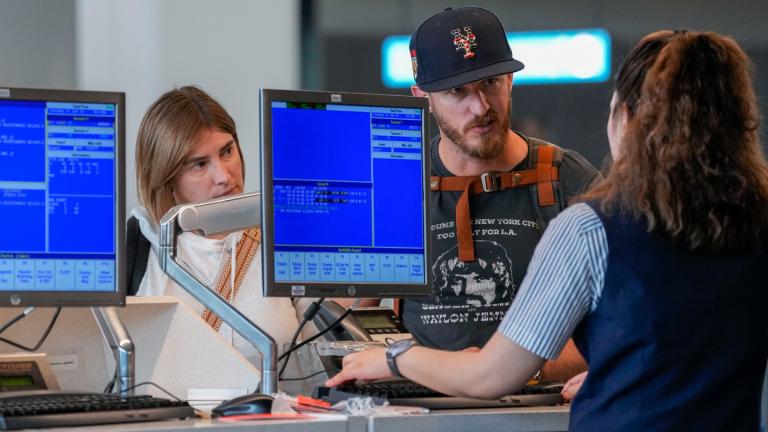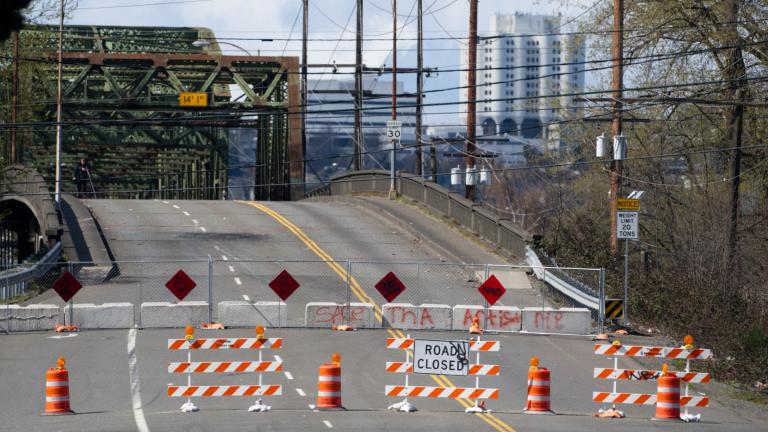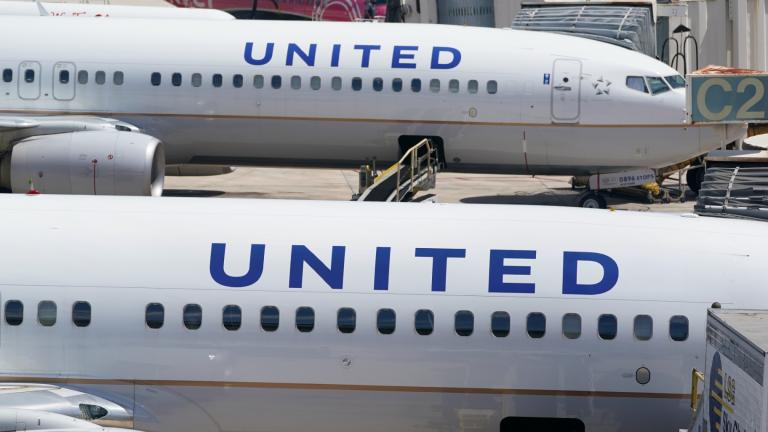A strike that’s stretched two weeks could imperil Chicago-area road projects at the height of construction season.
Some 300 members of the International Union of Operating Engineers Local 150 — those who are employed by Chicago-area quarries run by Lehigh Hanson, Vulcan Materials Co. and Lafarge Holcim — went on strike June 7.
“We’re talking about 300 men and women who work in pits and quarries for aggregate material producers,” said Ed Maher, spokesman for Local 150. “So this is things like sand, gravel, crushed stone — aggregate materials that are very important in making concrete, cement, various construction materials, asphalt. (The laborers) operate heavy equipment.”
The stone crushed in the quarries is then purchased by asphalt and concrete companies, which use the aggregate raw material to make their products.
“These (asphalt and concrete) companies typically have stockpiles (of aggregate) that will last them for a certain amount of time, but as the strike has continued, those stockpiles have begun to dwindle,” Maher said. “So as that happens, then construction companies are running out of material. Can’t lay asphalt. Can’t open, can’t grind existing roads because then they won’t have the asphalt to replace them.”
Illinois Department of Transportation spokesperson Maria Castaneda said the longer the strike goes, the bigger its impact will be on roadwork, especially in the Chicago area.
“If this strike persists, the list of projects impacted would be pretty much a majority of the contracts that are out there,” Castaneda said. “Things are definitely starting to slow down, to almost a halt.”
Castaneda said as of now, IDOT does not believe the slowdowns will push back estimated completion dates, but she also said if there isn’t a resolution soon, some of the ongoing work on the Jane Byrne interchange will have to be put on hold.
Other IDOT projects, like resurfacing, aren’t getting started unless there’s a guarantee there’ll be product to complete the job.
IDOT work such as landscaping, bridge painting and pavement markings will not be affected, Castaneda said.
The impact of the construction delays would be felt not only by drivers groaning at the notion of roadwork stretched out any further than need be; it is also having a ripple effect on other laborers, like truck drivers and road builders, who can’t work if jobs are paused.
“The materials strike is impacting construction job sites throughout Chicagoland. Layoffs are currently happening. And if the strike goes into the next week or two, we will see many more layoffs of workers at impacted jobs sites,” said Mike Sturino, president of the Illinois Road and Transportation Builders Association.
Concrete and asphalt mixes are also used in vertical construction, be it in homes or large commercial buildings.
Building contractors have taken notice of the strike, “absolutely,” said Michael Cwienkala, of the Chicagoland Associated General Contractors.
“We have been able to get a small amount of asphalt from some of our suppliers. However their inventories’ been running low and we’re hearing by the end of the week that they might have to shut their plants down, so even those small amounts of asphalt that we are getting now may come to an end,” Cwienkala said. “It will delay the completion of projects.”
The group is surveying its members to try to get a better hold of the situation.
“We’re hearing anecdotal stories of projects that have been delayed, that can’t get materials. Some of the owners and agencies are not allowing substitute materials,” Cwienkala said.
Shipping in materials from out of state or other areas isn’t always an option due to costs.
Other material producers also mine the raw materials, and Local 150 said it has reached an agreement with the Northern Illinois Materials Association.
But the trio of companies where workers are on strike produce the bulk of limestone, sand and aggregate.
Lehigh, Vulcan and Holcim negotiate collectively as the Chicago Area Aggregate Producers, or CAAPA.
The group did not make anyone available for an interview Wednesday, but sent a statement through a spokesperson.
“CAAPA and Local 150 union leaders continue their negotiations on a new
contract. CAAPA received its first wage and benefit proposal from Local 150 on Friday, June 17, after six bargaining sessions without one,” the statement reads. “CAAPA offered a counter proposal on Monday, June 20. The ball is in Local 150’s court at this time. We are willing and ready to continue talks and get employees back to work.”
CAAPA said workers are valued, and employee benefits include the companies covering 100% of healthcare premiums, holiday and overtime pay, and “80 hours of COVID pay per year since 2020.”
But Local 150 says it’s not about benefits or pay; the issues are “legit grievances” that led the union to file charges with the National Labor Relations Board.
“It’s over unfair labor practice charges,” Maher said. “Unilaterally changing the terms of a collective bargaining agreement. Threatening employees, coercing employees, interrogating employees. All of these things are basic worker rights that are laid out in the National Labor Relations Act and all of which these three companies violated.”
Maher said union negotiators are available to go back to and stay at the table, but that CAAPA is “recklessly” delaying talks.








